By Emmanuel Onwubiko
“Integrity is doing the right thing, even when no one is watching. It’s the cornerstone of credibility and the pathway to a trusted legacy:” Dr. Marcel Mbamalu.
Join our WhatsApp ChannelOne of the most sophisticated and organised crime that is feared around the whole wide World is hard drug trafficking.
“With estimates of $100 billion to $110 billion for heroin, $110 billion to $130 billion for cocaine, $75 billion for cannabis and $60 billion for synthetic drugs, the probable global figure for the total illicit drug industry would be approximately $360 billion.”
The above is from Drug statistics recorded by www.worldometers.info.
Besides, statisticians of crimes, have also ascertained that an analysis of different forms of transnational organised crime, shows that drug trafficking continues to be the most lucrative form of business for criminals, with an estimated annual value of $320 billion.
Next in line in the hierarchy of notoriety of global crime to drug trafficking, is human trafficking which is a global crime in which men, women, and children are used as products for sexual or labour-based exploitation.
Historically, Nigeria is a transit point for heroin and cocaine intended for European, East Asian and North American markets.
READ ALSO: EDITORIAL: Africa’s Drug Scare, Horror And Cartels
The United Nations office on drugs and crime stated that since 2004, drug traffickers have been increasingly using West African Countries, including Nigeria, for smuggling large amounts of cocaine from South America into Europe and North America.
It is therefore safe to draw the conclusion statistically that, Nigeria, occupies a notorious position in the global drug trade.
The above knowledge based on empirical findings, therefore, tells us that combating this sort of organised crime in a place like Nigeria is a herculean task. It is not a job for the boys but a task to be handed over to committed professionals and Patriotic Nigerians.
Combating hard drug trade in Nigeria is therefore a very dangerous task almost at par with fighting terrorists.
This comparison pales into insignificance when we recalled that already, crime statisticians have recorded drug trafficking as the largest organised crime globally.
The question I have therefore tasked myself to answer in this piece is, how come that drug trafficking that is rated as the most notorious global crime, is actually being combated seamlessly in such a fashion that the hitherto dreaded drug barons of few years back, have literally become balloons?
The answer boils down to just two factors that have been brought to bear by the charismatic leadership of the National Drugs law enforcement Agency (NDLEA) led by Brigadier-General Mohammed Buba Marwa.
These factors are: dedication/devotion to duty and becoming passionate about delivering on the mandate of NDLEA. Dedication to work and passion for your work are the twin strategic attributes in rich display by General Marwa and his team.
Devotion to duty is actually one of the finest professional attributes expected of a great technocrat or bureaucrat.
This is because the phrase devotion to duty has as components, such qualitative attributes as competence, confidence, efficiency, accountability, respect for learning, willingness to lead, open and balanced mind and importantly, team spirit.
READ ALSO: Editorial: Nigerian Youths, Crystal Meth And Crack Cocaine Abuse
Reading through a piece well written on the phrase devotion to duty, yours faithfully came to the realisation that the rich display of the attribute of devotion to duty, becomes, very explicit, especially, if this leadership quality is showcased by heads of key institutions such as the NDLEA that deserves the highest standard of service worthy of the faith and confidence that the public has bestowed on it.
This fact is made manifest when we remember the drug situation in Nigeria in which authorities have estimated that the past year prevalence of drug use in Nigeria stood at 14.4 percent or 14.3 million people aged between 15 and 64 years (www.nigerianstat.gov.ng).
This is even from a 2018 report on drug use in Nigeria as encapsulated in the report done by the National Bureau of Statistics.
The second factor in rich supply within the NDLEA’s hierarchy at the moment is what scholars call passion for work.
Experts say as follows: “Passion for work means you feel excited about what you do. You find meaning and purpose in your work. You tackle each day with focus, never making excuses for why you can’t get things done. As the legendary Oprah Winfrey famously summed it up: “Passion is energy. Feel the power that comes from focusing on what excites you.”
“Are you passionate about work? It’s easy to tell. Passionate people get out of bed every morning feeling energized and alive. You’re completely engaged and get lost in your work. You’re always thinking about how you can do more, be more and contribute more – and you work hard to achieve those goals. You stay committed to your projects and your company. And you’re constantly learning and growing. Only then can you truly say, “I am passionate about my work.”
“There’s more to the question “What is passion for work?” than a definition. Passion for work also can benefit your personal and professional growth, as well as your company’s success. Studies have found that “calling-oriented” employees – those who feel passionate about their work – achieve both higher pay and organizational status. They also experience greater fulfillment in their jobs and tend to stay with the same company for longer.”
Experts asked as follows: Why does passion have so many benefits?
And answers thus: When you are passionate about work, you’re able to experience and embrace the gift of drive. Your focus increases. You no longer fear failure. You become more creative and innovative. That’s the kind of energy that senior management can’t miss, and they reward it with promotions, raises and bonuses.” (www.tonyrobbins.com).
Little wonder then that, in a bid to rid the nation of all businesses involving illicit drugs, the National Drug Law Enforcement Agency (NDLEA) has arrested 42 drug barons and one drug baroness in the last 42 months.
The lastest of these arrests was alleged billionaire Idumota trader, Nwaoha Anayo, who was nabbed at Onitire, Aguda area of Surulere, and 12, 700, 000 pills of tramadol recovered from him on October 31.
Earlier in the same October, operatives of the NDLEA took into custody two wanted heads of transnational criminal organisations with multi-billion-naira worth of illicit drugs and assets seized from them after weeks of intelligence-led operations across the country and outside Nigeria.
The arrest of the wanted drug lords came on the heels of the interception of consignments of cocaine and heroin buried in the bellies of two traffickers heading to Paris, France and Doha, Qatar by NDLEA officers at the Nnamdi Azikiwe International Airport, Abuja.
Operatives at the Murtala Mohammed International Airport, Ikeja, Lagos, on Tuesday October 10, succeeded in taking into custody Hakeem Babatunde Salami, the arrowhead of “Tajudeen Babatunde Abioye Transnational Criminal Organization.”
The drug cartel is said to be involved in illicit trade of several narcotics, including Cocaine, Heroin, Methamphetamine and Ephedrine between Nigeria, Brazil, Ghana, South Africa, Mozambique and Europe.
He fled Nigeria to South Africa upon the arrest of a member of his syndicate, Suleiman Babatunde Oba, at Lagos airport on August 25 over an attempt to export 25.10kgs of ephedrine to South Africa.
Head of another cartel, Okafor Ikechukwu Williams (aka Jantu), and his wife, Okafor Ifeyinwa Grace, were also taken into custody on Thursday October 5 when NDLEA operatives raided their hideout at 9 Awa Street, Ago Palace, Okota area of Lagos where they recovered 27.566 kilograms of methamphetamine concealed in a blue box and two sacks, ready for export to Europe and Asia.
On October 1, the NDLEA announced the arrest of drug baroness, Faith Ebele Nwankwo, after three major illicit drug syndicates were taken down.
Media investigations showed that the agency seized over seven million kilograms of drugs in the period under review, while over 852.142 hectares of cannabis farms have been destroyed and three clandestine methamphetamine laboratories dismantled.
In June 2023, NDLEA chairman, Brig.Gen. Marwa, said about 31,675 drug offenders were arrested in 29 months.
Inevitably the number has risen to about 32,000 offenders in 42 months, says a recent media estimates.
About 5,147 of them prosecuted and convicted, while over 7 million kilograms of assorted drugs were seized within the same period.
Also, the agency has destroyed drugs worth over N202 billion, with the highest destruction happening in September 2022 when it destroyed drugs valued at N195 billion in a single day in Badagry, Lagos.
Marwa had also stated that over 11,000 other cases still pending in court, while 23,725 drug users had been counselled and rehabilitated, majority of them through brief interventions.
In addressing the drug challenges in Nigeria, Marwa also said, “We have destroyed 852.142 hectares of cannabis farms and dismantled three clandestine methamphetamine laboratories. I can assure you that even as we speak, NDLEA agents are busy with interdiction activities somewhere.”
He said drug supply reduction is however only one of the components of the equation. “Another crucial component is drug demand reduction, which operationally means prevention, treatment and rehabilitation. It should go without saying that we must strike a balance between these two crucial components if we are to achieve our desired utopia of a drug-free society.
“NDLEA has made significant investments in prevention, treatment and rehabilitation over the last two years. The doors of our rehabilitation facilities are open at all times. We have acquired a few more rehab centres, given to us as donations, while we have also obtained the federal government’s approval for the construction of regional model rehabs.
“More private treatment facilities are also cooperating with NDLEA. To cap it all, NDLEA went above and beyond to invest in a toll-free, round-the-clock call centre that provides teletherapy. In summary, we have prioritised treatment, while our WADA advocacy initiative has taken a life of its own with our Commands, Formations and partnering civil society organisations taking sensitisation lectures and campaigns to schools, communities, worship places and many more across the country everyday.
“In addition, we have also produced TV Commercials and Radio Jingles in different languages being broadcast on various platforms. This is simply aimed at prevention, by sensitising the people and equipping them with facts about drugs to enable them take the right decisions against substance abuse.”
He charged society to drop the stigmatisation that discourages drug users from seeking treatment, a development that has serious socio-economic repercussions for individuals and their families.
He said: “Stigmatisation and discrimination make recovery and reintegration difficult for drug-dependent users who submit themselves to treatment. And the prevalence of such an attitude is counterproductive to the effort, time, and resources invested by governments, institutions, and corporate bodies working to contain the drug problem.
“This is what the year’s theme is about. We must rid ourselves of any bias against those who are drug-dependent to be able to support, expedite, and make permanent their recovery. The theme will serve as an impetus for us to make a collective effort to break down these invincible but formidable social barriers that undermine the attainment of the goal of a drug-free society.”
While also speaking at a recent event in Abuja, UNODC Country Rep, Oliver Stolpe, emphasized the “benefits of international cooperation in criminal justice matters with a specific target of dismantling trafficking networks involved in this terrible trade”, adding that “long overdue is the need to make sure that the public and primary health care providers are better prepared to take basic drug counseling needs, knowing how to deal with people suffering from drug use disorders.”
In the process, about three foreigners have also been arrested for attempting to export and import illicit drugs outside and into Nigeria.
In August 2023, attempt by a 29-year-old South African, Erasmus Jean Pierre, to export 2.6 kilograms of methamphetamine concealed in his luggage to the Middle East through the Nnamdi Azikiwe International Airport, Abuja, was thwarted by NDLEA operatives who arrested him and recovered the illicit drug.
Also, a Chadian, Mohammed Ibrahim, 25, was nabbed at Mafa check point, Borno State with 11.8kgs of Skunk on Monday 25th September.
A 34-year-old South American man from Suriname, Dadda Lorenzo Harvy Albert, who was arrested by NDLEA operatives at the Port Harcourt International Airport, Rivers State, for bringing into Nigeria 117 parcels of cocaine concealed in extra-large latex condoms factory packed inside bottles of 100ml body spray, he has been convicted and sentenced to 13 years in prison.
With the above empirically documented feats by the NDLEA, is it any wonder if we say that General Marwa is such a combatant that has turned the hitherto dreaded drug barons, into balloons?
EMMANUEL ONWUBIKO is head of the HUMAN RIGHTS WRITERS ASSOCIATION OF NIGERIA and was NATIONAL COMMISSIONER of the NATIONAL HUMAN RIGHTS COMMISSION OF NIGERIA.





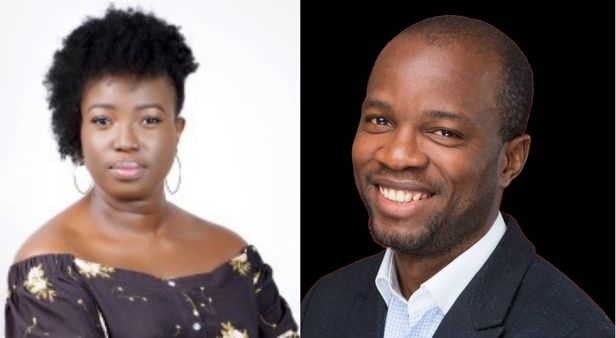
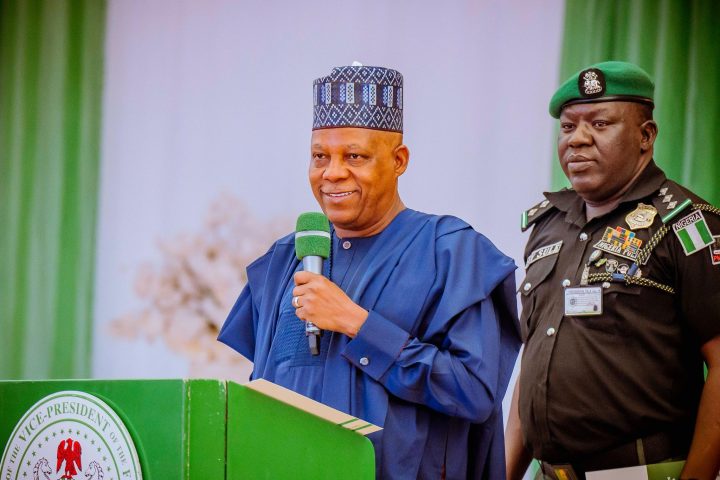







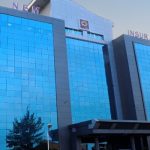

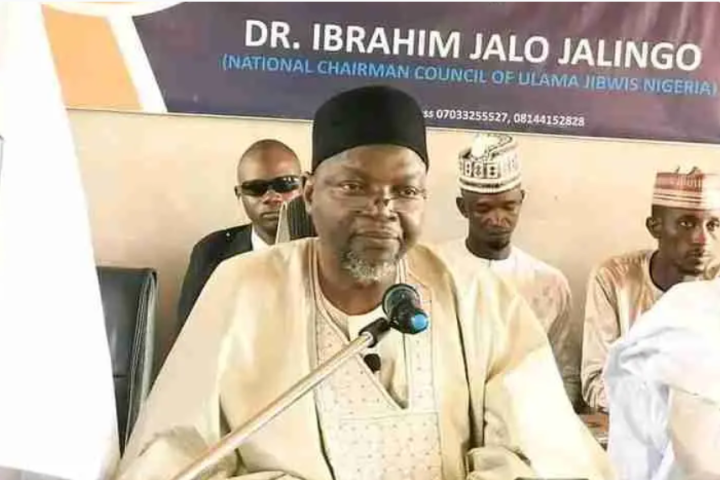
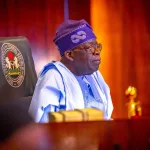
Follow Us